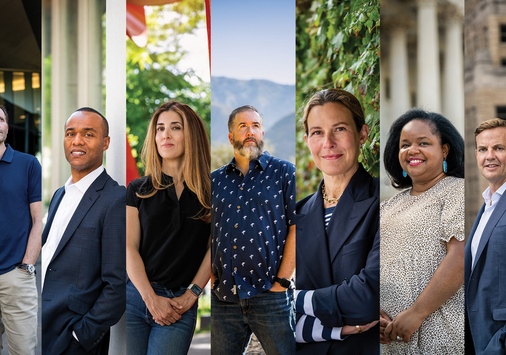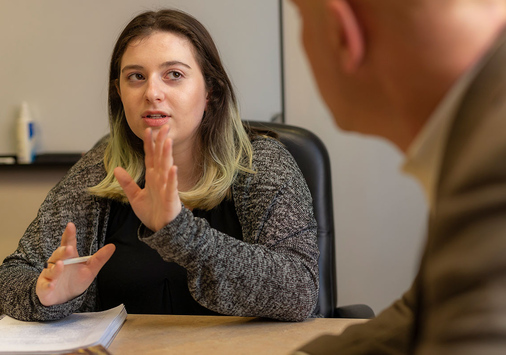The Communication Department offers a rigorous and robust curriculum that addresses three overarching areas of study: Relational Communication, Rhetoric, and Media Studies. In the tradition of the liberal arts, we encourage students to take courses from all three areas of study to appreciate the complexity of communication. It is our commitment to educate autonomous thinkers who use moral discernment when addressing the issues of our time through a curriculum that engages students in intersecting media, texts, and interactions when analyzing meaning-making in any given context.
Our curriculum emphasizes cognitive complexity in processes of inquiry, analysis, reflection, writing, and speaking.
- At the 100-level, courses introduce topics relevant to the study of communication and ways of thinking about communication in the world;
- 200-level courses introduce theoretical perspectives, assisting students in formulating and investigating questions appropriate to the discipline as taught at Denison;
- 300-level courses explore theory and research that helps students utilize the power of communication perspectives and methodologies on topics important to them and to society;
- 400-level courses engage students in developing proficiency in the study of communication and producing new knowledge that is socially significant, ethically informed, and fundamental to cultivating one’s self as a life-long learner.
Throughout the curriculum we generate opportunities in many ways for students to practice what they are learning. Students practice the discipline through structured opportunities that promote original research in senior seminars, conference presentations, journal publications, and summer research. In terms of less traditional modes of practice students have multiple opportunities to address publics through speaking and writing, ethically engaging with other students from a variety of backgrounds and perspectives, using technology as agents rather than consumers, and interrogating and rethinking the performance of the self. Insofar as “practicing” the discipline involves mindful awareness and reflection on the processes of communication that continually surround students, the department does this as a matter of course.














